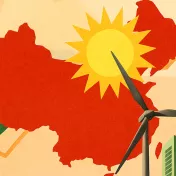For the first time, Canada has a framework that brings the federal government, most provincial and territorial governments, and all major economic sectors together on a shared path of climate action. This puts Canada into position to join other countries in showing significant international climate leadership. After the recent G7 Summit outcome in Taormina, the upcoming Canadian G7 presidency will be decisive to push climate action forward.
Right after having ratified the Paris Agreement in October 2016, Canada unveiled in December 2016 its Pan-Canadian Framework on Climate Change and Clean Growth (PCF, Link). The Framework aims at putting Canada on track to meet its current nationally determined contribution (NDC) of reducing emissions 30% below 2005 levels by 2030. Proposed policy measures include:
• Nation-wide carbon pricing by 2018
• Fossil fuel subsidy phase-out by 2025
• Phase-out of coal-fired electricity by 2030
• Reduction in methane emissions 40-45% by 2025
• A Canada-wide zero emissions vehicle strategy by 2018
However, Climate Action Network Canada estimates that Canada’s fair share contribution would see the country reducing emissions by 50% below 2005 levels by 2030 while increasing Canada’s contribution to international climate financing to $4 billion/year by 2020 (Link).
The credibility of the Framework hinges on the timely and effective implementation of proposed policies, as well as the establishment of an oversight mechanism that reinforces accountability such that Canada’s climate plans course-correct in response to evidence and steadily ratchet up the country’s ambition.
The implementation of the Framework is moving along steadily. On fossil fuel subsidies, for instance, Canada took a small step toward phase-out in its most recent federal budget, cutting a subsidy worth about $50 million annually. This is a drop in the bucket of Canada’s total subsidies - estimated at $3.3 billion per year (Link) - but it is an important move in the right direction. Canada has yet to produce an inventory of subsidies, however. Nor has it committed to undertake a voluntary peer-review of fossil fuel subsidies, as established by China and U.S. in 2016. A clear date for fossil fuel phase-out from the G20 would make the urgency of moving forward with subsidy phase-out clear to Canada and other countries.
Canada’s Domestic Action Has Implications for the World
The successful implementation of Canada’s plan has major implications for the global effort to confront climate change. Without significant climate policy that improves on the ambition already laid out in Canada’s NDC Canada will be the world’s second highest contributor of new oil production over the next twenty years (Link). Yet with the PCF Canada is now one of few major oil-producing jurisdictions to boast significant federal climate policy. To address the country’s carbon footprint and serve as a model for action to other G20 countries, the Framework needs to overcome several hurdles.
The PCF is a creative approach that may turn Canadian federalism, which has traditionally constrained Canada’s ability to move coherently and consistently on climate change, into a strength. It is intelligently designed to scale up the most impactful subnational activities established in recent years and to accommodate flexible provincial and territorial approaches to achieving outcomes mandated by federal policy. The vulnerability of this approach, is that it relies on provinces and territories following through with and, in many cases, exceeding their current commitments.
A shifting political landscape south of the border also threatens to hamper implementation of the PCF. Opponents are pointing to competitive disadvantages Canada might face if moving forward with ambitious climate action while its largest trading partner retreats. Furthermore, several policies key to Canada’s ability to meet its climate targets are harmonized with U.S. policy.
From Domestic Progress to International Leadership
Business, investors and government officials are watching the political dynamics of the upcoming G7 and G20 Summit to understand the level of resolve and support for the Paris Agreement and continued confidence in the global direction of travel. Reassuring these entities, both domestically and abroad, will require Canada and other countries to use all the communications tools and venues available to assert their commitment to the competitive advantages of growing a low carbon economy. At the Petersberg Climate Dialogue last week, the Canadian Minister for Environment McKenna insisted on the urgent need for climate action and, in line with findings from a recent OECD report (Link), shed light on the economic advantages and growth perspectives of low-carbon development.
Canada assumes the G7 presidency following the conclusion of the 43rd Summit in Italy in May. The G7/8 has been shaping the global agenda on climate change since the last Italian Presidency (Link) in 2009. In the shade of Trump’s blockade strategy, the fact that six of the seven G7 member states reaffirmed in the most recent G7 Summit communiqué their commitment to implementing the Paris Agreement can be considered as a success. At the same time, the divide means a huge challenge for the Canadian presidency. The credibility and legitimacy of the G7 as an agenda shaping venue relies in part on Canadas ability to pushing climate action forward.
Canada has made significant political investments in climate leadership and decarbonization in the last two years. CAN Canada therefore anticipates that Canada will play a leadership role to ensure as successful outcomes as possible on climate and energy at the G20 Summit. China and the EU have put climate action high on the agenda for their meeting on June, 2nd – Canada is about to join their alliance for ambitious and decisive climate action. This would equip Canada to enter its G7 presidency building from constructive multilateralism that serves to counterbalance anti-climate sentiment in certain national contexts. Successful G20 Summit outcomes this year would also have a positive reinforcing effect for Canada’s domestic agenda.

Catherine Abreu
Executive Director, Climate Action Network Canada
- With financial support by Stiftung Mercator. The Author and Germanwatch are responsible for the content. -




